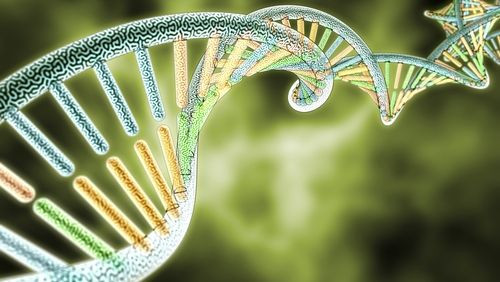New Algorithm Explains Sexual Recombination: Researchers Now Understand Why There Is Still So Much Genetic Variation As People Evolve

There might be a new way to explain diversity with sexual recombination results, using an algorithm, according to researchers from the University of California, Berkeley. The research was published in the early edition of the National Academy of Sciences collaboration with the UC Berkley computer scientists and researchers from other fields that related to the project. Sexual recombination means different genes from different people (e.g., mother and father) are combined to form a new gene combination that had not previously existed.
This research bridges three fields’ algorithms, evolutionary theory, and the study of strategic decision-making (game theory). The algorithm is already well-known, and it’s usually used in computer science. However, the researchers are taking this formula and applying it to evolutionary biology.
“There is a paradox in evolution,” said study co-author Umesh Vazirani, UC Berkeley professor of electrical engineering and computer sciences and director of the Berkeley Quantum Computation Center. “Suppose the mixing of genes through sexual recombination helps create a perfect individual. That perfection gets lost in the next generation because with sex, the offspring only inherits half the perfect parent’s genes. If sexual recombination speeds up the rate at which good solutions are found, it also speeds up the rate at which those solutions are broken apart.”
One of the other questions Christos Papadimitriou, a UC Berkeley professor of electrical engineering and computer sciences, posed was: If the point of evolution is to select the best genes, why is there so much genetic variation?
“It’s the same (in evolutionary biology),” he said. “The players who participate in the game are the genes, and they look at how the various alleles performed in the previous generation and boost the good performers and decrease a little the bad performers.”
This paper is more focused on the weak selection in evolution. In this way, selection forces are not sudden, only offering gentle advantages that amount to slow improvement over time, Papadimitriou said.
“We noticed that with variation, genes have a preference for a 50-50 distribution rather than a 90-10 distribution,” said Papadimitriou, a giant in the field of computational complexity. “If we use a gambling analogy, genes don’t want to go all-in. They want to hedge their bets. Even if there is an extremely successful genetic trait, evolution doesn’t want to let the genes for the other traits go extinct in case they’re needed later.”
"Now we’re noticing that nature uses this algorithm in evolution. It makes it easier to understand why evolution has been so successful,” Papadimitriou concluded.



























